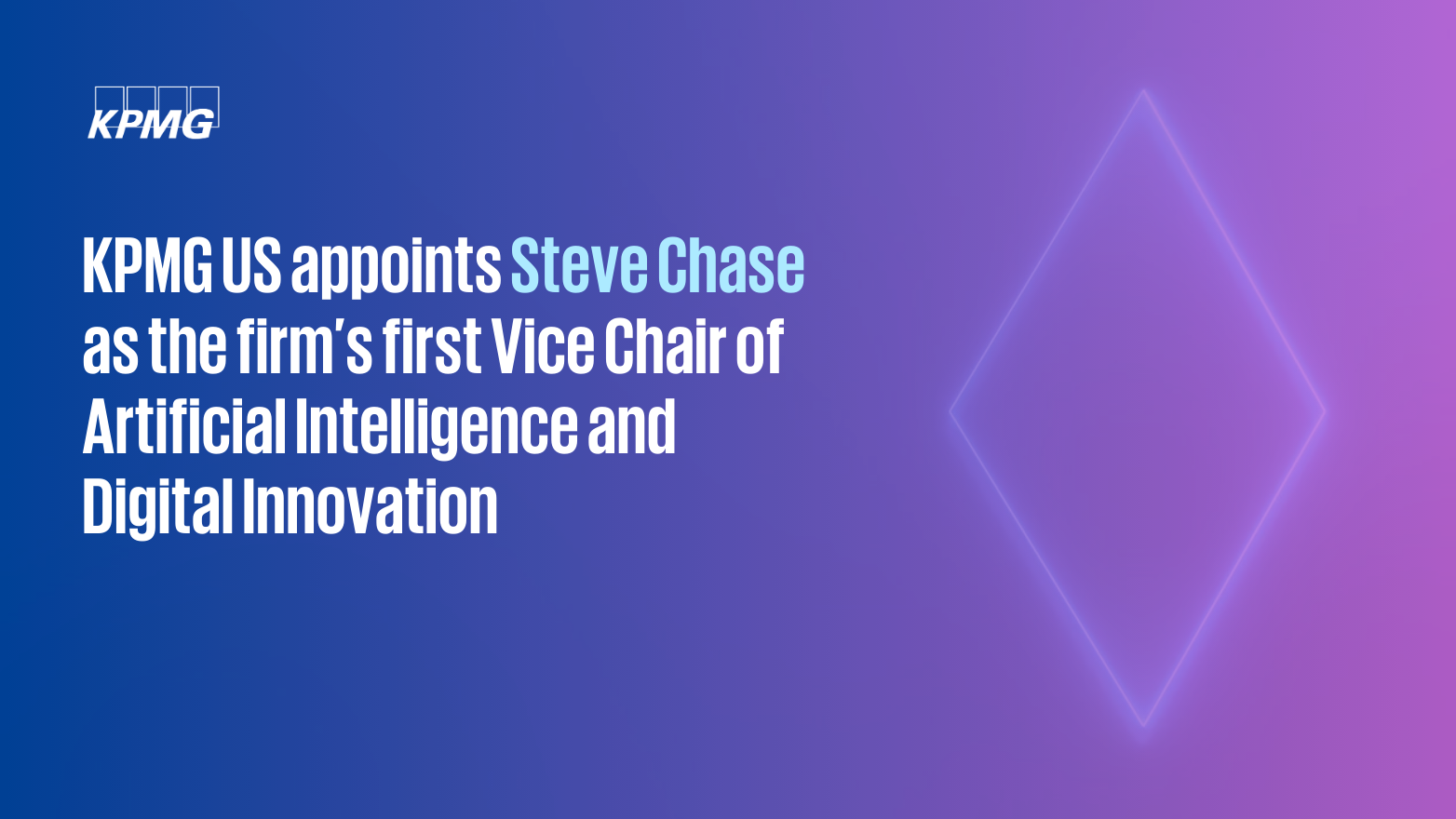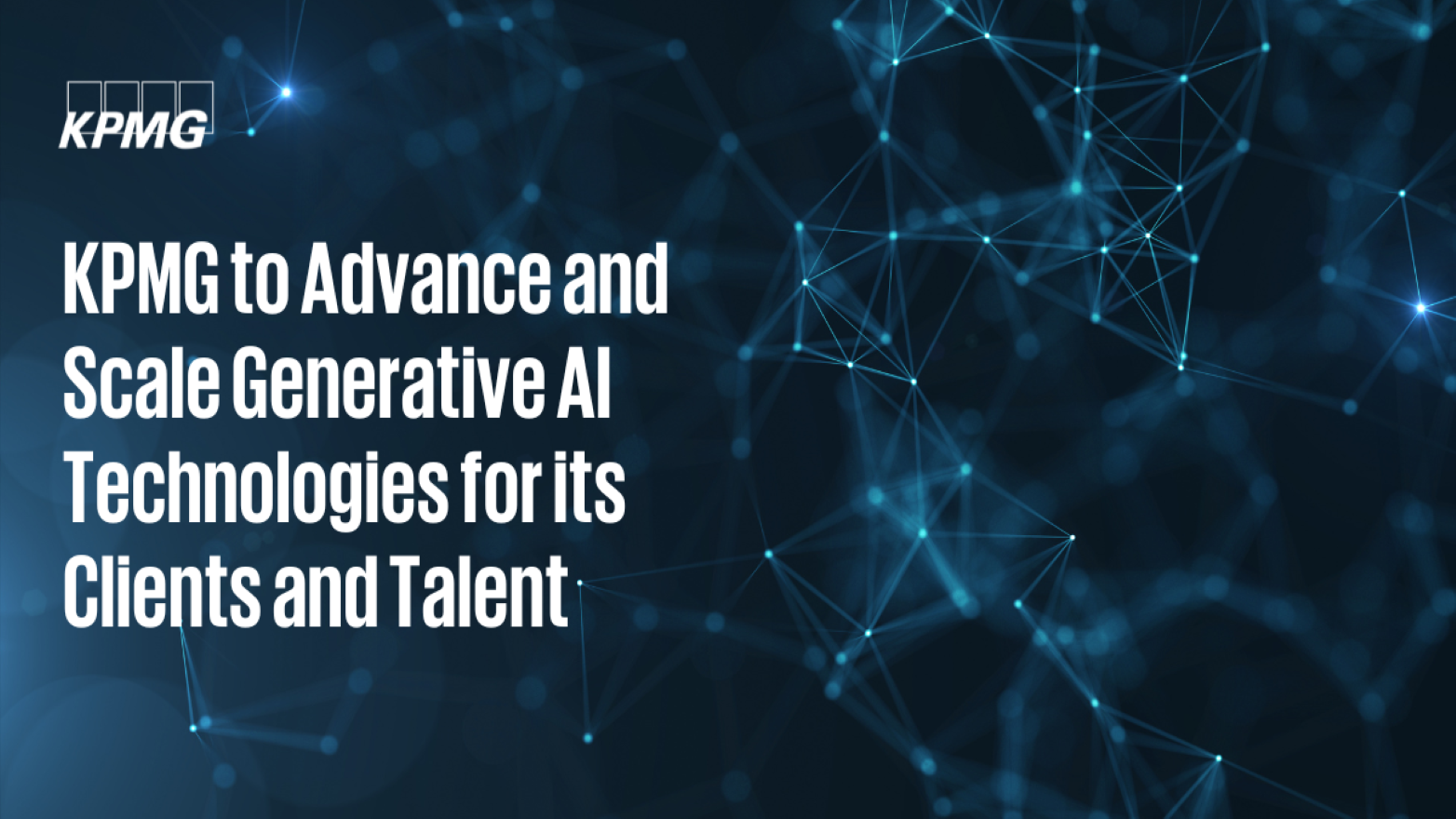Building stakeholder trust in risk transformation is a priority, but use of AI & ML is still in early stages

In today's business landscape, organizations are increasingly recognizing the importance of building stakeholder trust through the successful management of risk, regulation, cyber and ESG, while continuously transforming to stay on the forefront of change. The shift in focus is driven by the increasing understanding that trust is a valuable asset that enhances reputation, drives enterprise value and ultimately leads to long-term success.
In a recent webcast titled Building Stakeholder Trust in Risk Transformation members of KPMG’s Risk Services team discussed how to build trust with stakeholders and shared insights and key data points uncovered in the new KPMG Chief Risk Officer (CRO) survey. Highlights of the discussion include:
Use of AI & ML in the risk function
CRO participants in the survey said that they are focused on building out the skills and capabilities of their teams to efficiently and effectively identify and manage risks. In fact, CROs in the survey cited artificial intelligence (AI) and machine learning (ML) as the most vital digital tools to accelerate risk management processes in the next five years, followed by cloud and cyber solutions. Specifically, three-quarters of CROs said that their organizations currently use AI and ML in their risk management practices, with the leading use cases being monitoring success of implemented tools and considering technical feasibility and alignment with organizational capabilities.
Conversely, of the risk and compliance professionals that participated on the webcast only 45% indicated that they themselves are currently using AI or ML in their function in a limited or moderate capacity – even though 67% of them think that transforming their function is a priority.
“Technology is essential for good risk management,” said Emily Frolick, Trusted Imperative Leader, KPMG LLP. “CROs know that using artificial intelligence (AI) and machine learning (ML) can improve their risk management abilities, but not everyone has started using these technologies yet. By using AI and ML, along with other technologies, risk professionals can better manage risks, quickly react to new threats, and build trust with stakeholders.”
Key Takeaways
-
67% of risk and compliance professionals that participated on the webcast said that transforming their function is a priority.
-
45% of risk and compliance professionals that participated on the webcast said that AI/ML is in limited or moderate use in their functions.
The role of regulation and outsourcing risk management
Regulatory requirements also play a significant role in shaping risk management practices, according to the webcast discussion. Organizations are facing an increasingly complex regulatory environment, with new laws and regulations being introduced regularly. It is no surprise that CROs consider regulatory and compliance issues as the biggest risk management challenge in the next 2-5 years.
“It is crucial for organizations to comply with new regulations because not only is it a legal obligation but it is essential in gaining trust from stakeholders,” added Frolick. “Organizations must take measures to ensure that their compliance programs are strong, flexible, and enabled by technology to meet regulatory requirements effectively and avoid possible risks.”
Outsourcing risk management functions is another key component in organizations’ overall business strategy. By outsourcing certain risk management activities, organizations can tap into specialized expertise and resources, reduce costs, and enhance their risk management capabilities. However, outsourcing also comes with its own set of challenges, such as maintaining control over critical processes and ensuring the quality and integrity of outsourced services.
“Organizations need to carefully evaluate the potential benefits and risks before deciding to outsource risk management functions, with stakeholder trust being top of mind,” added Frolick.
The webcast discussion concluded that organizations are recognizing the importance of applying a risk-based approach to meet business objectives. This involves implementing efficient and effective risk management processes, leveraging technology, complying with regulations, and considering outsourcing as a strategy. By prioritizing risk management and building a risk-aware culture, companies can enhance stakeholder trust and position themselves for long-term success in today's dynamic business environment.
To learn more about building stakeholder trust in risk transformation and the results of the 2023 KPMG Chief Risk Officer survey, as well as arrange an interview with Emily Frolick, please contact Andreas Marathovouniotis. A replay to the webcast is also available here: Building stakeholder trust in risk transformation (kpmg.com)
Explore more

KPMG Trusted AI and the Regulatory Landscape
A resource page that shares that latest perspectives from KPMG U.S. leaders on the evolving AI regulatory environment.

KPMG Establishes New AI and Digital Innovation Group
KPMG LLP announced the establishment of an AI and Digital Innovation group led by a newly named Vice Chair, Steve Chase. Read more.

KPMG to Advance and Scale Generative AI Technologies for its Clients and Talent
KPMG announces a new initiative to deploy a series of generative artificial intelligence (AI) investments and alliances to empower its workforce, further advance cutting-edge client solutions and reimagine how the 125-year-old firm operates.

